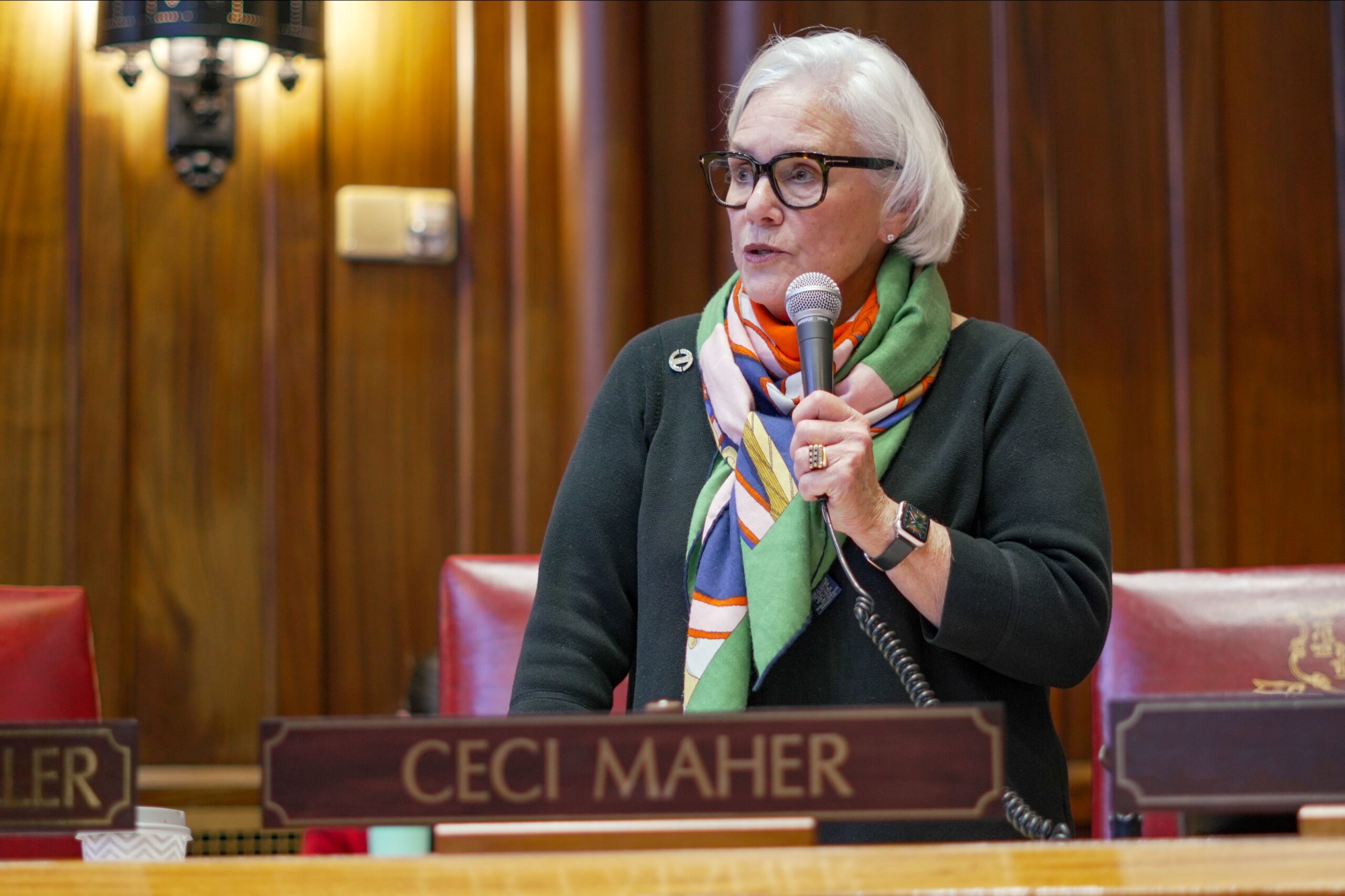
FOR IMMEDIATE RELEASE
Wednesday, April 30, 2025
SEN. KUSHNER LEADS SENATE PASSAGE OF BILL TO EXPAND FIREFIGHTER CANCER RELIEF PROGRAM
HARTFORD – State Senator Julie Kushner (D-Danbury) today led Senate passage of a bill that adds skin cancer to the list of cancers covered under the state’s Firefighters Cancer Relief Program, as well as defining such afflictions as an “occupational disease” instead of a personal injury and expanding the program to state firefighters working at UCONN and Bradley International Airport.
Senate Bill 1426, “AN ACT MAKING CHANGES TO THE FIREFIGHTERS CANCER RELIEF PROGRAM. SUMMARY,” passed the Senate today on a unanimous and bipartisan vote and now leads to the House of Representatives for consideration.
Significantly, the bill expands the types of cancers covered by the program to include skin cancer (melanomas), which are one of the Top 10 cancers that firefighters develop, according to the Firefighter Cancer Support Network. Other types of cancer already covered by the state program include those affecting the brain or the skeletal, digestive, endocrine, respiratory, lymphatic, reproductive, urinary, or hematological systems.
“We depend on firefighters to protect our lives and property. We have to be there for them and their families when, as the result of fighting these fires, they contract cancer,” said Sen. Kushner, who helped shepherd this bill through the Labor and Public Employees Committee. “I’m so proud that we as a legislature are taking steps to ensure all firefighters in Connecticut, municipal and state, will have the resources they need f they contract cancer on the job.”
“On behalf of the nearly 4,000 career firefighters in our state, I want to thank the Senate leadership and the entire Senate for taking swift action in passing Senate Bill 1426, which makes important technical changes to our Firefighter Cancer Relief program,” said Peter Brown, President of the Uniformed Professional Fire Fighters Association. “These changes will streamline the claims process so our firefighters battling cancer will be able to access critical benefits without delay. I also need to share my sincere appreciation to our champion, Senator Julie Kushner, who led the charge to get this bill passed and who fights tirelessly to improve firefighter health and safety every session. We look forward to working with our partners to get this measure over the finish line in the House.”
The Firefighters Cancer Relief Account is managed by the state Department of Administrative Services, and it receives funds through the state budget and investment income. In the past three years, the account received an average of $617,908 per year through annual appropriations and investment income. In the same period, the account expended an average of $242,989 per
year. The account’s current balance is $8,124,758.






